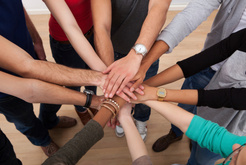|
National Association of Adult Survivors of Child Abuse
National Association of Adult Survivors of Child Abuse
~~~~~~~~~~~~~~~~~~~~~~~~~~~~~~~~~~~~~~~~~~~~~~
NAASCA Highlights
EDITOR'S NOTE: Occasionally we bring you articles from local newspapers, web sites and other sources that constitute but a small percentage of the information available to those who are interested in the issues of child abuse and recovery from it.
We also present original articles we hope will inform the community ... |
HOME
why we started this site
|
RECOVERY
together we can heal
|
RESOURCES
help stop child abuse
|
ABOUT
a little about us
|
CONTACT
join us, get involved
|
.

A survivor shares his story: “Together we can do what we cannot do alone”
Bill Murray -- NAASCA.org |
|
A survivor shares his story: “Together we can do what we cannot do alone”
by RAACE.org - Race Against Abuse of Children Everywhere
4/9/2015
Bill Murray, survivor, public safety advocate (LACP.org), founder of National Association of Adult Survivors of Child Abuse (NAASCA.org), host of the Internet talk radio show "Stop Child Abuse Now" (BlogTalkRadio.com/Bill-Murray), and founder of ASCAA, a 12 Step recovery program for adult survivors of child abuse (ASCA12step.org), shared his story with RAACE.
I was sexually abused for several years, starting when I was 11. I didn't tell anyone, and internalized my fear, anger and shame. An introvert with a temper, I started doing badly in school and getting into trouble. I hated myself, and began drinking heavily as soon as I could get my hands on alcohol. |
I drank and used drugs throughout my 20s. I knew that my substance abuse was related to my sexual abuse, but I couldn't find the help I needed. In my early teens, I'd told my complete story to a priest during a long Confession, but it turned out I'd chosen a predator priest! The psychiatrist I saw later didn't help. There were no services for male sexual abuse victims in the 70s, so I tried seeking help from a rape counselor. But I was turned away.
In the early 80s, I was graced to find an Alcoholics Anonymous home group where the elders understood that, for me, talking about my child abuse and trauma was an important part of my recovery. They encouraged me to share about it, seeing that it might help others, too. This was a turning point. Although I still didn't talk about the experience outside the anonymity of the organization, I was taught that the 12 Steps, the basis of AA, are “a design for living,” and, as such, can be used to help a person recover from anything. They became not only the basis for my recovery from substance abuse but also my recovery from sexual assault. I've been sober since 1984. About 20 years into my recovery I began to go public with the story of my childhood sexual abuse.
By then I had done a lot of public safety advocacy, so I was familiar with the role of being an activist. But I'd promised myself I'd postpone disclosing the trauma of my youth since I knew how much it would hurt my non-offending parents. They were devout Catholics and many of my abusers were members of the clergy. I knew the time had arrived when after my father passed away and my mother was moving into the later stages of Alzheimer's disease. I was ready to share my story of abuse and recovery in the general public.
That's when I launched the National Association of Adult Survivors of Child Abuse (NAASCA). Our all-volunteer group works to educate, inform and prevent all forms of child abuse and trauma—physical abuse, psychological trauma, sexual assault, verbal abuse, and neglect. We support anyone from any walk of life with their recovery, too. We educate the public about the pandemic of child abuse, teaching what can be done to prevent it. All the services and information we offer are free. Our hope is to be a hub for resources, and feature an online list of every English language abuse support and recovery group in the world.
We also produce an Internet-based “Stop Child Abuse Now” talk radio show six nights a week, with guests who are survivors and/or activists or recovery professionals. We provide a nightly opportunity for listeners to call in, or to post questions via our chat room. All our over 1400 episodes are available in an ever-growing library for “on demand” listening. We're building a community, because personal recovery depends on being able to connect with others. That's what we strive to provide—that shared opportunity to connect.
This work and engaging with a larger community have become an important part of my personal recovery. I'm not trying to solve the problem of child abuse alone. That would be naive. I'm working to encourage everyone to make the problem visible. Many people are in denial, either about the trauma of their own experiences or about the existence of abuse in their families and communities. My hope is that someday we'll turn a corner, where child abuse and childhood sexual assault will no longer be a taboo topic in our society. Vocalization—that's the path to progress.
But this isn't something any of us are going to accomplish by ourselves. It's something we need to do together, because together we can do what we cannot do alone.
~~~
Join RAACE by becoming a RAACE Fan on Facebook and/or subscribing to our monthly newsletter and inviting those within your child's circle of trust to join in the fight against and prevention of child sexual abuse! Visit RAACE.org today or call 1.800.755.KIDS.
|
HOME
why we started this site |
|
|
|
|
|
|